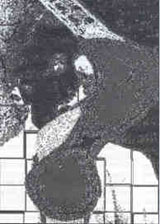Time for excitement
 TO THE question "What is time?", Saint Augustine of Hippo, the revered 4th century thinker is reported to have remarked, "If no one asks me, I know, but if any person should require me to tell him, I cannot." This enigmatic statement is probably what most of us would agree with. All of us have an innate sense of what time is but would be hard pressed to say exactly what it is.
TO THE question "What is time?", Saint Augustine of Hippo, the revered 4th century thinker is reported to have remarked, "If no one asks me, I know, but if any person should require me to tell him, I cannot." This enigmatic statement is probably what most of us would agree with. All of us have an innate sense of what time is but would be hard pressed to say exactly what it is.
A scientific study of time was, unfortunately, neglected because of its association with the mystic and the subjective. This changed with Galileo, when time entered the realm of science as a measurable entity. However, time still retained its commonsensicaf meaning in the Newtonian scheme of things. Einstein changed all that with his theory of relativity, challenging all the accepted "truths" about the nature of time.
Paul Davies' new book is about the progress we have made since Einstein in unravelling the mystery of time. Written for the lay person who is not very familiar science and its intricate terminologica other complexities, Davies successfi&ri municates to his addressees the excam inherent in this field of inquiry. StartuM a wonderful overview about the cenarab time in human thought, titled appr" "A iery brief history of time", he goes 4 explain the revolution brought aboq Einstein. The notion of relativity of 1 which Einstein introduced in pl"9 absolute time and its implications are w4 the topics discussed. Recent developmel cosmology provide important insigbts the conundrum of time.
The question, "How ol our universe?" is being volubil fiercely debated once again. R4 reports have highlighted new al vations which have put a que mark on the hitherto held 6 about the age of the universe. Wi lucidly and without any pu Davies manages to infuse a lo excitement about the otherwise a nornical in its esotericity.
Several recent and specul ideas of Stephen Hawkings and I Penrose, among others are menti here. Going back and forth in has always fascinated sci-fi wr Undoubtedly, the possibilitic limitless; from the macabre on going back in time and killing grandmother to changing the fi "before" it happens, they offer a scope for the imaginative mind.
Lately, there has been sorne in exploring the physics of warps, and the behaviour of tir the context of string theories. D discusses some of this fascin work but one wishes he had given I details. Another lacuna in the book i absence of any discussion on the role of in biology and in human consciousness.
In 1974, Davies wrote an excellent m graph titled, The Physics of Time Asynnin which still remains one of the definitive V in the field. With About time, he has rea out to the lay reader. Though idiosyncra his choice of topics, Davies' latest wo excellent, and in many ways is far bette complete than Hawkings' much appla book on the subject.
